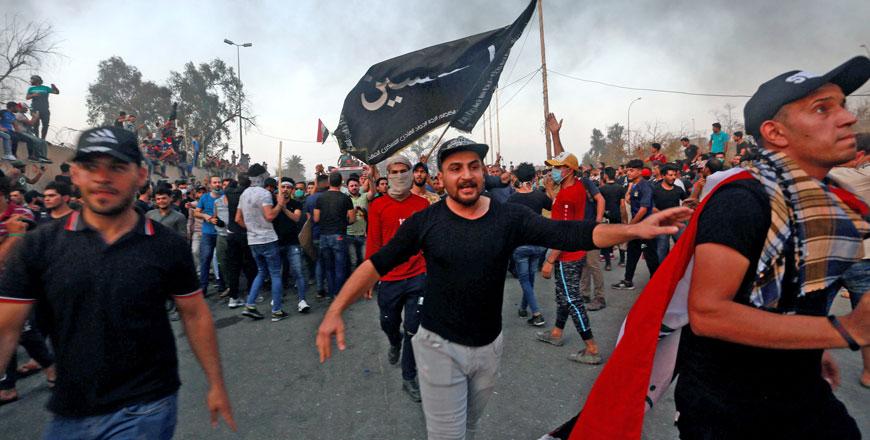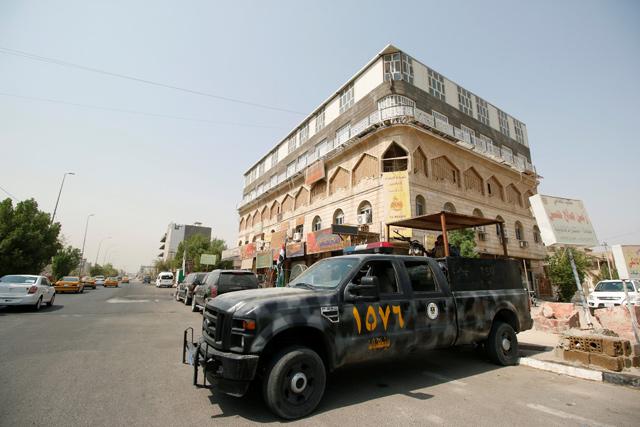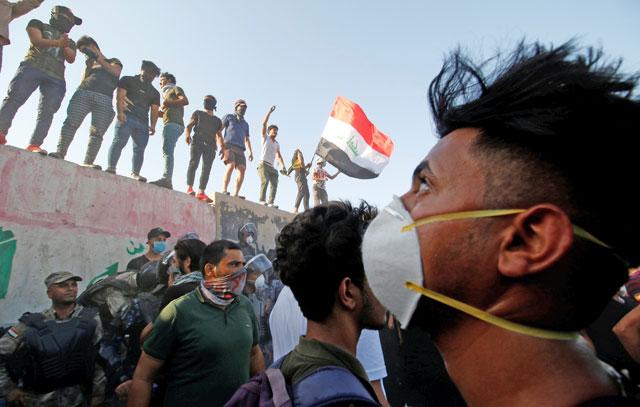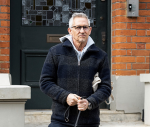You are here
Calm returns to Iraq’s Basra
By AFP - Sep 10,2018 - Last updated at Sep 10,2018
BASRA, Iraq — After several nights of deadly protests, calm returned to the southern Iraqi city of Basra on Sunday, even as residents stuck to their demands that the central government no longer neglect their region.
The city of three million people was abuzz with trade, after violence that has killed 12 and seen several key buildings torched by protesters.
"After a week of smoke and anger, everything is back to normal," said Faeq Abdel Karim, a 44-year-old wedding photographer whose studio is on a busy downtown street.
At the market, egg seller Faleh Mane was happy to be serving clients once again.
"The market is as it was before — likewise road traffic,” the 50-year-old said, dressed in a traditional long white robe matching his hair colour.
But the gripes that lit the fuse — endemic corruption and poor public services, culminating in 30,000 people being hospitalised by polluted water — remain unresolved.
Since early July, 30-year-old Mohammed Shaker has, with others, been organising demonstrations in Basra.
He and the other protest leaders decided on Saturday not to take back to the streets.
They want to disassociate themselves from the violence that peaked with the torching of local government buildings and an Iranian consulate.
But there is no question of declaring the protest movement dead, Shaker told AFP.
The demonstrators have succeeded in “creating a collective conscience and inspired a frank and courageous movement against corruption”, he said.
The “angry wind that has blown across Basra... has forced politicians to speak aloud about the problems”, shaking them out of their apathy and negligence, he added.
Montazer Al Karkuchi, coordinator of the Rally for Basra Youth, also believes change is in the air.
From now on, politicians will be forced to “think twice” before taking on the streets, he said.
The protest movement is “not finished while there are no concrete projects and serious government measures” to tackle the problems afflicting Basra, he added.
Like many here, Karkuchi identified the water crisis, electricity shortages, endemic unemployment and unpunished corruption as the key drivers of discontent.
The crisis in Basra even led to tense exchanges between Provincial Governor Assad Al Eidani and Prime Minister Haider Al Abadi on Saturday in an emergency parliamentary session.
“Basra is on fire, my home has been burned down,” raged the governor — only to be told by Abadi that his provincial administration is responsible for the crisis.
“I have already told you a hundred times that the police chief was corrupt,” responded Eidani.
The parliamentary exchanges have brought cautious optimism among Basra’s residents that the crisis will finally be addressed.
“The governor’s words have warmed our hearts and restored hope,” said 29-year-old Abdallah Al Basri.
New deal in Baghdad?
The prime minister appears to have been the main political victim of the Basra unrest.
Dropped by his brief ally Moqtada Sadr, whose bloc won the largest share of seats in national elections in May, Abadi’s chances of staying in government seem to have been hit.
Experts say the new situation could unblock a long-running political paralysis next Saturday when lawmakers are due to elect the speaker, after failing to do so in their inaugural post-election session on September 3.
Sources in parliament even said the appointment could be brought forward.
Abadi’s position has been undermined further by Sadr allying himself with the Conquest Alliance, a bloc of pro-Iranian former anti-jihadist fighters.
Sadr’s Marching Towards Reform bloc is “on the same wavelength [as us]”, Conquest Alliance spokesman Ahmed Al Assadi said on Saturday.
The factions are the two largest in Iraq’s parliament — Sadr won 54 seats in May and the Conquest Alliance 48 seats.
With further horse-trading, the way could be open to forming a majority in the 329-seat parliament, even without Abadi, who has been hit by dissent in his own bloc — and threats of defections.
Abadi suffered another setback on Saturday evening.
Abu Mehdi Al Muhandis, the deputy leader of the Hashed Al Shaabi paramilitary force, accused Abadi of attempting to take the glory for neutralising Daesh.
After years of brutal fighting, the prime minister declared victory against the jihadists in December.
Abadi “had no role in this victory over IS [Daesh] — it was the soldiers, the police and your brothers in Hashed that won it”, Muhandis said in a televised interview.
Related Articles
BAGHDAD — Iraqi lawmakers met Saturday in emergency session Saturday to discuss the crisis in public services in main southern city Basra af
BASRA, Iraq — Prime Minister Haider Al Abadi sought to ease tensions in Iraq’s oil-rich south on Monday with a visit to Basra, rocked by dea
BAGHDAD — Iraqi Shiite leader Moqtada Sadr called on Thursday for "radical" solutions to a health crisis which has sparked mass rallies and


















